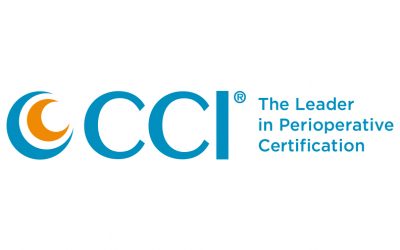
By Dawn Whiteside, DNP, MSN-Ed, RN, CNOR, NPD-BC, RNFA
Leadership is the art of guiding and influencing others towards a common objective. The successful implementation of change within the health care system cannot be done by an individual nurse; it necessitates collaborative effort from the entire nursing community. In this collective pursuit, nurses must acknowledge and embrace the leader within themselves. Frequently, I encounter nurses who disassociate from leadership roles, stating, “I am not a leader; that is the manager’s responsibility.” Overcoming this mindset is pivotal, as the primary obstacle to creating necessary changes to impact our environment and most importantly our patient care lies in the recognition that each nurse, irrespective of formal titles, possesses leadership qualities.
Leadership is a dynamic skill that can be cultivated and honed over time. Nurse leaders must create a foundation for developing and refining their own leadership skills, as well as seeking opportunities to access formal education and training. Formal leaders have a title or are in a position of authority that require others to follow their direction. Informal leaders do not have an official title or position but do have influence over individuals because of their ability to motivate others with a demonstrated passion to lead. Any nurse can become an informal leader by being a role model to others, persistently advocating for evidence-based practice, and helping the organization achieve better outcomes (Competency and Credentialing Institute [CCI], 2021). Effective leaders have essential characteristics that include being a visionary, having the ability to clearly articulate desired goals, are passionate about the goal, can share and inspire passion in others, and are ethical in their actions (CCI, 2021). Effective nursing leaders are often role models within the unit they work. The passion for improving patient care, creating a healthy work environment and supporting others is palpable.
The Institute of Medicine’s (IOM) report (2011), “The Future of Nursing: Leading Change, Advancing Health,” discussed the need for nurses to lead change. Thirteen years later, it continues to be a key factor in health care and the nursing profession. The four key messages from the IOM report led to many recommendations related to advancing the role of nursing professionals as leaders within health care (IOM, 2011). To support the role of nurse as leader, the IOM report recommendations included expanding current opportunities for nurses to lead and collaborate with other members of the health care team, including physicians, provide a seamless academic transition to increase the proportion of nurses with a baccalaureate degree, as well as double the number of nurses with a doctorate, and commit to lifelong learning (IOM, 2011). The latest Future of Nursing Report (2021), “The Future of Nursing 2020-2030: Charting a Path to Achieve Health Equity,” again calls on nurses and organizations to expand the leadership role of nurses.
Leadership development may come through experience, but it may also come through training or formal education. It is important for formal leaders and managers to support informal leaders in achieving growth within the leadership role. The challenge is then for formal leaders to seek out and better utilize the opportunities within and/or outside the organization to provide the training and education needed for their informal leaders to be successful. One way for organizations to seek resources is to partner with academic institutions. Academic partnerships may already be part of the organizations health care system as the host of nursing students to support clinical rotations. Additional resources may be available to advance the leadership skills of staff nurses. Many health care organizations offer tuition assistance or reimbursement that nurses have not considered using to support professional growth.
CCI has partnered with Edgewood College in Madison, Wisconsin for several years. The nursing team at CCI teaches two 16-week electives for prelicensure nurses to experience perioperative nursing. The next collaborative effort between CCI and Edgewood College is a formal academic training program for perioperative leadership – The Perioperative Leadership Graduate Certificate course, set to debut in the fall of 2024. Tailored for practicing nurses who have already graduated, this course delves into key leadership domains, including communication, human resources, professionalism, operations, strategic management, and finances. These domains have been built based on the psychometrically validated job analysis for the Certified Surgical Services Manager (CSSM) credential offered by CCI. The perioperative leadership graduate certificate course provides an overview of how health care and leadership intersect and form the basis of quality outcomes and improving patient care services.
Recognizing that leadership is an inherent and vital characteristic of nursing, nurses find themselves in a unique position to instigate substantial positive change. As informal leaders inspire their peers through unwavering passion and commitment to fostering the change they envision for the future, the imperative is to proactively seek and leverage available resources for success. This proactive approach ensures that nurses not only contribute to improving the overall work environment but also elevate the standards of practice for the benefit of their patients.
Dawn Whiteside, DNP, MSN-Ed, RN, CNOR, NPD-BC, RNFA is the Director of Education and Professional Development of the Competency & Credentialing Institute. Dr. Whiteside has over 35 years of experience as a perioperative nurse in many roles including circulator, scrub, first assistant, team leader, charge nurse, manager, and educator. She serves on the ABSNC Board of Directors as well as the editorial board for MD Publishing. As an educator, Dr. Whiteside is passionate about developing educational materials for all members of the perioperative team.
References:
Competency and Credentialing Institute (CCI), 2021. CSSM Exam Prep Book, Second Edition.
IOM (Institute of Medicine). 2011. The future of nursing: Leading change, advancing health. Washington, DC: The National Academies Press.
National Academies of Sciences, Engineering, and Medicine. 2021. The future of nursing 2020–2030: Charting a path to achieve health equity. Washington, DC: The National Academies Press. https://doi.org/10.17226/25982.








